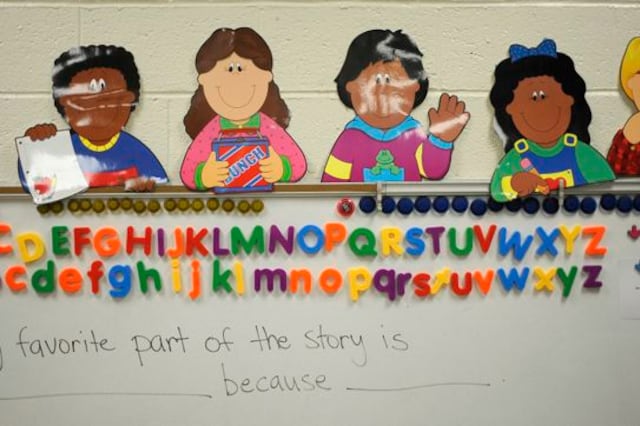Sign up for Chalkbeat Indiana’s free daily newsletter to keep up with Indianapolis Public Schools, Marion County’s township districts, and statewide education news.
Elementary students in Indianapolis Public Schools will learn English language arts with a new curriculum this coming school year that emphasizes background knowledge and foundational skills.
The district is switching to the Amplify Core Knowledge curriculum in time for the state deadline for all schools to adopt reading curriculums based on the science of reading by the 2024-25 school year. The science of reading is a large body of research on how kids learn to read that advocates for direct phonics instruction as well as phonemic awareness, fluency, vocabulary, and comprehension.
IPS leaders see the change as positive not just because it aligns with state law, but also because it connects to the district’s goals to promote racial equity and increase access to a rigorous education.
IPS selected Amplify Core Knowledge from a list of curriculum options approved by the state.
“We’re excited to lead that work, because for us this is an equity issue,” IPS Director of Literacy and Humanities Jannine Campbell said. “We want to make sure that our students in IPS have access to the most rigorous curricular resources as possible, so that they have the best opportunities to become proficient readers.”
One reason the district chose Amplify Core Knowledge was because of the multicultural representation in the curriculum and books accessible to students, leaders said. Some of the titles include “Imani’s Moon” by JaNay Brown-Wood, “A Doll for Navidades” by Esmeralda Santiago, and “Long Walk to Freedom” by Nelson Mandela.
“Our kids can make connections, and they can see this as mirrors of themselves in these books,” Aus said.
The new curriculum also increases the focus on building background knowledge, which is essential for comprehension, said Haley Aus, the district’s English language arts coordinator for grades K-2.
Beyond the new curriculum, IPS will approach literacy development with the Scarborough’s Reading Rope model, she added. This model suggests that different strands of language comprehension and word recognition come together to achieve skilled reading.
By third grade, those strands should start working together. That’s when students transition from learning to read to reading to learn, said Michael McFadden, the district’s English language arts coordinator for grades 3-5.
“We’ve got the foundational skills, but then we have comprehension,” Aus said. “We know that the science of reading says it needs to be explicit, it needs to be systematic, and it needs to be diagnostic in order for it to align with what research tells us on the ways that the brain learns to read.”
IPS Executive Director of Teaching and Learning Michelle Jackson said the district has been preparing for the change by holding open office hours with educators and previewing the material for educators.
Haley Miller is a summer reporting intern covering education in the Indianapolis area. Contact Haley at hmiller@chalkbeat.org.






